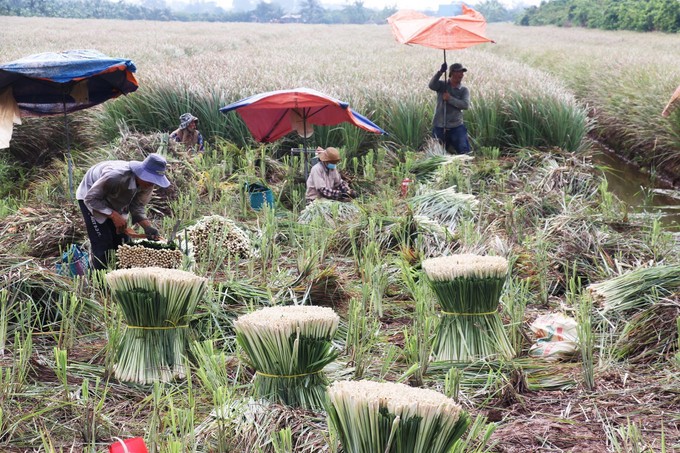
Lemongrass has the advantage of being drought-resistant, using little water, requiring low fertilizer and care costs, and can be grown in multiple crops a year, so local authorities encourage people to switch from low-yield, unstable rice cultivation to lemongrass. Lemongrass is easy to grow, so people take advantage of the cultivated land around their houses, in their gardens, and along the edges of their fields to increase their income and stabilize their lives.
In Tan Phu Dong islet commune, Dong Thap province, farmers grow 2-3 crops of lemongrass a year. The specialized lemongrass growing area in the commune is 4,020 hectares. The average yield is from 15 tons to 17 tons/ha with an average profit of nearly 80-100 million VND/ha, 3-4 times higher than growing high-yield rice in the locality. In the first 6 months of 2025, Tan Phu Dong commune planted 2,333 hectares of lemongrass, with a harvest yield of 43,835 tons.
Currently, farmers in Tan Phu Dong commune, Dong Thap province are in the lemongrass harvest season with the purchase price from traders reaching 4,500-5,000 VND/kg. Mr. Tran Cong Khanh in Ba Tien 1 hamlet, Tan Phu Dong commune, boldly converted 0.2 hectares of land from rice cultivation to lemongrass cultivation from 2013 until now, said: On average, each lemongrass growing season (3 months), he earns a profit of nearly 20 million VND.
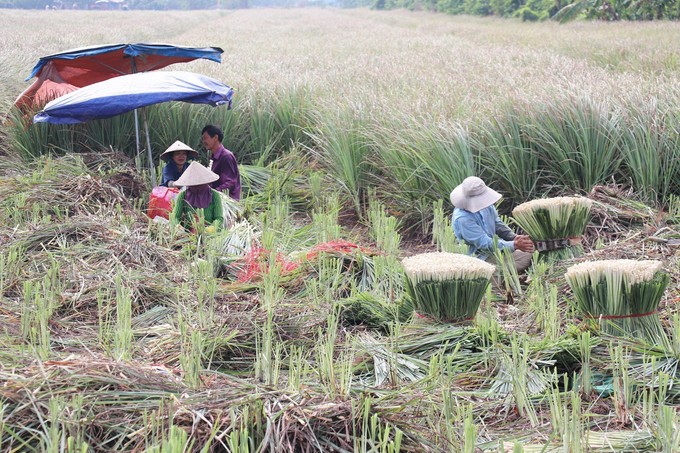
Mr. Nguyen Van Nha, residing in Ba Tien 2 hamlet, Tan Phu Dong commune, shared that lemongrass is drought-resistant, has a relatively stable price, and is rarely attacked by pests, so people feel secure when planting lemongrass. The technique for planting lemongrass is simple. In the sunny months, lemongrass can be planted anywhere, and in the rainy months, it is planted in ridges or trenches so that the lemongrass is not flooded when it rains heavily.
In addition to the economic benefits for lemongrass growers, the harvesting process also brings important sources of income, improving the lives of local farmers; focusing on the idle agricultural labor force, women, and the elderly. It is estimated that female workers who cut lemongrass leaves during harvesting alone earn an income of 3 - 4 million VND/month/person.
Mr. Le Thanh Dang, Chairman of the People's Committee of Tan Phu Dong Commune, Dong Thap Province, discussed that in order to develop lemongrass sustainably, which is currently the main crop of the island, the locality has built, registered and been granted a certificate of registration of the collective trademark "Tan Phu Dong Lemongrass" in April 2019, contributing to affirming the brand and position of lemongrass.
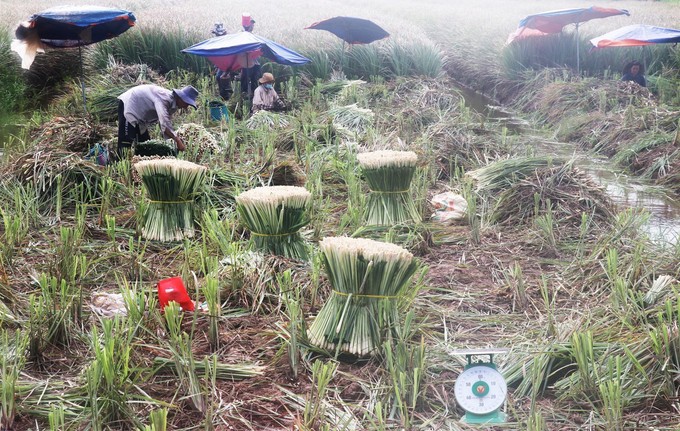
The People's Committee of Tan Phu Dong commune directed technical staff to continue to accompany and support farmers in the fields of management and effective exploitation of the collective trademark "Tan Phu Dong Lemongrass", strengthen the transfer of technology, application of science and technology in the production, harvesting, post-harvest handling, processing... to create great added value for farmers and partners to benefit together.
In addition, Phuc Nguyen Tan Phu Dong Trading - Investment - Construction Limited Liability Company has received the transfer and successfully implemented the Project "Application of the technological process of extracting essential oils and producing mushroom growing substrates and clean soil substrates from lemongrass waste to increase added value and sustainable development of lemongrass growing areas in Tien Giang province" implemented by Tien Giang Center for Engineering and Biotechnology (formerly under the Department of Science and Technology of Tien Giang province) now the Center for Applied Research & Science and Technology Services (under the Department of Science and Technology of Dong Thap province).
Phuc Nguyen Tan Phu Dong Trading - Investment - Construction Limited Company invested in a factory to extract essential oils from lemongrass leaves with high efficiency using pressurized steam with its own boiler. The factory operates at a capacity of 8 - 10 tons/day. The waste after extracting essential oils will be used to grow straw mushrooms; next, clean organic soil will be produced from the substrate after growing mushrooms or after distilling essential oils.
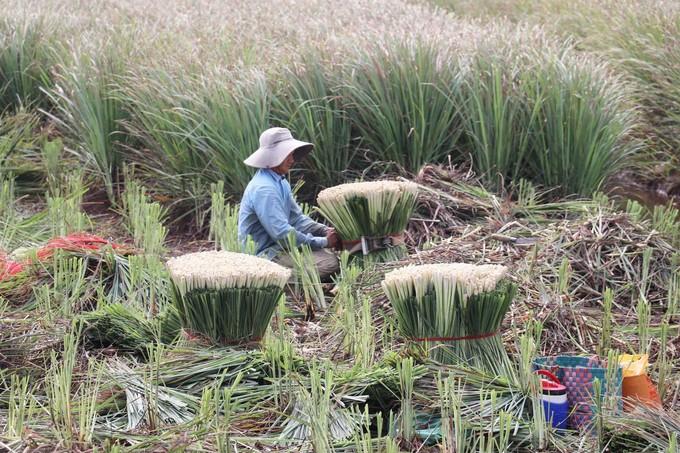
For the model of growing straw mushrooms from indoor and outdoor lemongrass waste, the project has trained 14 basic technicians and provided technical training to 200 farmers, built 300 m2 of mushroom growing house with related technical equipment, 1 yard shed for processing raw materials, 1 cool storage for fresh mushroom products, 1 drying oven... Similarly, for the model of producing clean soil substrate from lemongrass waste after distilling essential oils or after growing mushrooms, 14 basic technicians have been trained and trained 200 farmers, mastering 4 technological processes and being able to apply them to produce clean soil substrate from lemongrass waste.
Mr. Le Quang Khoi, Director of the Department of Science and Technology of Dong Thap province, affirmed that the application of advanced technology along with systematic investment, financial support from the state, enterprises, consulting and technology transfer from research facilities and experts has helped people in areas affected by climate change successfully transform the agricultural production structure, apply technology to solve output problems for lemongrass and by-products from lemongrass. Thanks to that, creating a product chain, contributing to increasing the value of lemongrass, opening a new direction for the lemongrass growing and processing industry of Tan Phu Dong commune in particular and Dong Thap province in general.
Source: https://baolaocai.vn/phat-trien-cay-sa-theo-huong-ben-vung-o-xa-cu-lao-post649991.html





![[Photo] Da Nang: Hundreds of people join hands to clean up a vital tourist route after storm No. 13](https://vphoto.vietnam.vn/thumb/1200x675/vietnam/resource/IMAGE/2025/11/07/1762491638903_image-3-1353-jpg.webp)


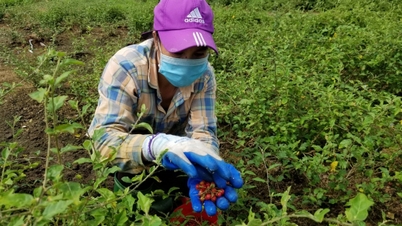



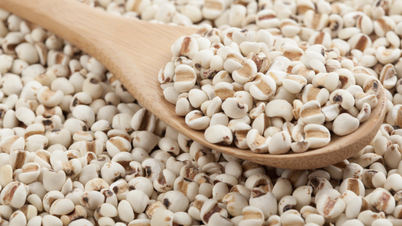

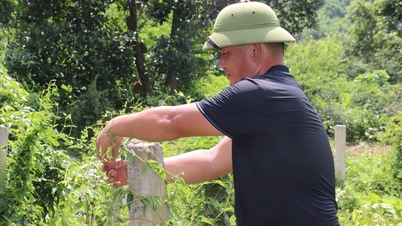








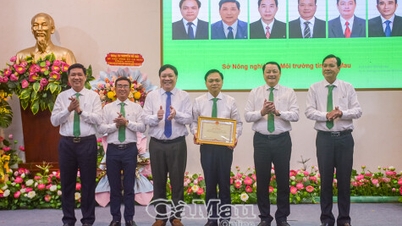











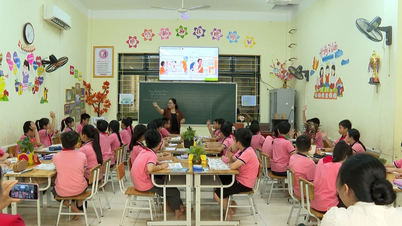

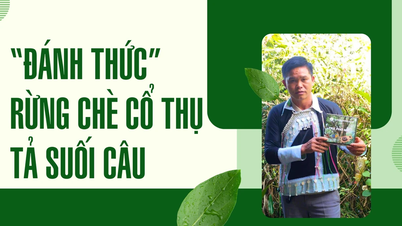
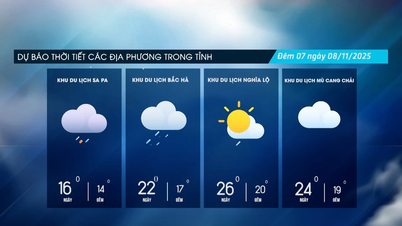





















































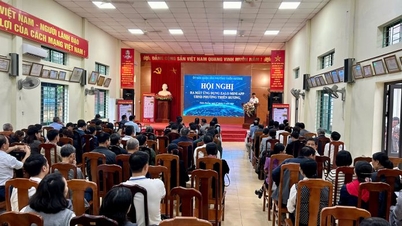

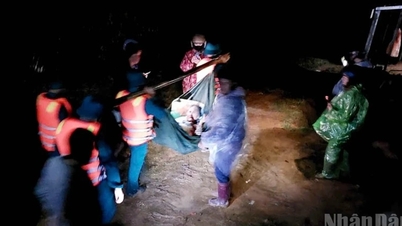












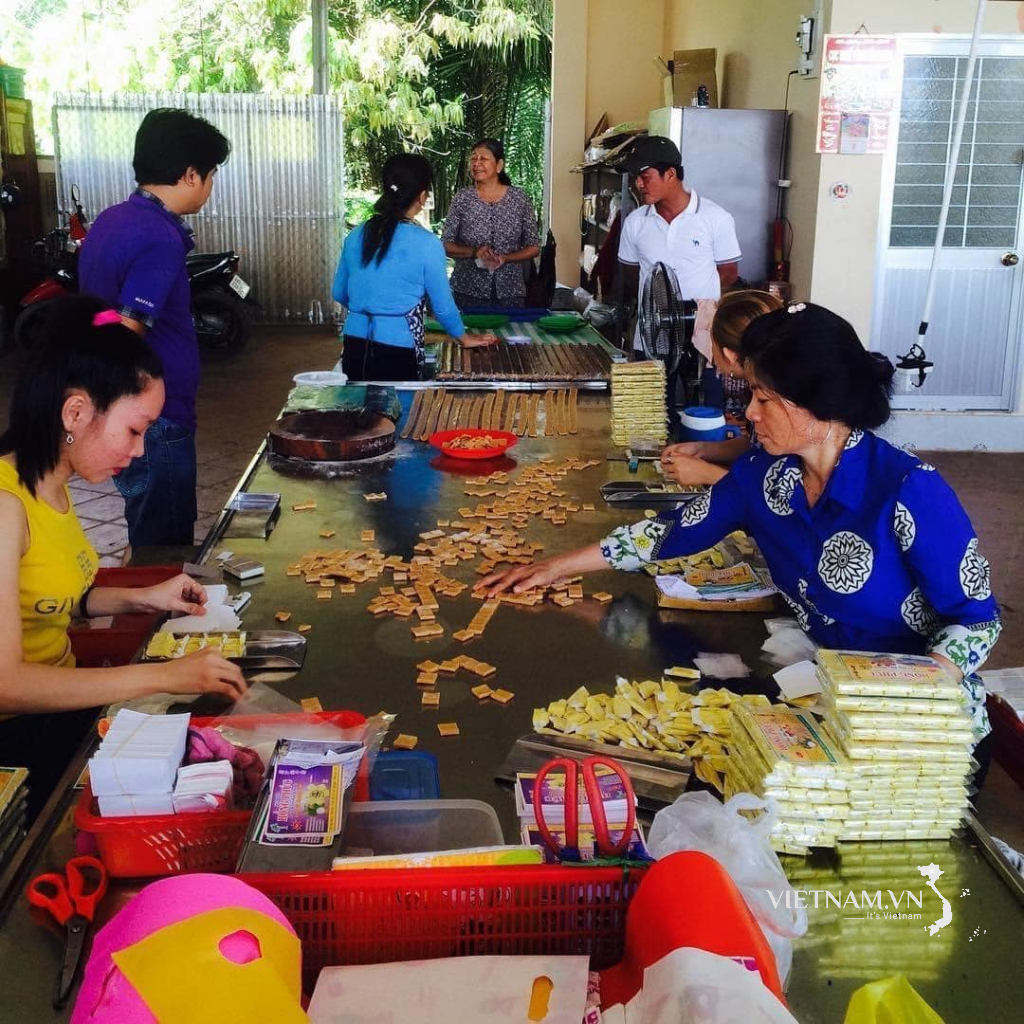



Comment (0)